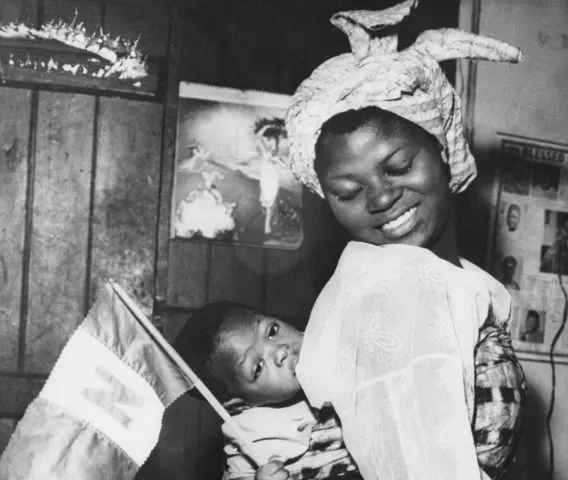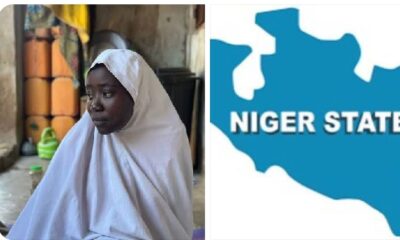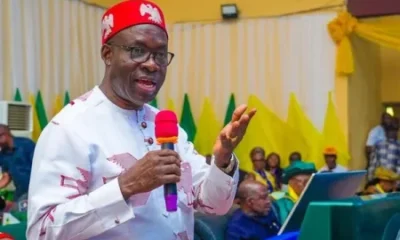Breaking News
FACT CHECK: 20 Historical Facts About Nigeria You Should Know

Nigeria is the most populous Black nation in the world today, with an estimated population of 204 million people. This country is marked by the emergence of various epochs of civilisations, states, kingdoms and empires, as well as a caliphate and colonial rule.. Read ..Full.. Article.. .
Here are the top 20 historical facts about Nigeria that you should know as a regular Nigerian or history enthusiast.
1. The British came to Nigeria in 1851, annexed Lagos in 1861 and established the Oil River Protectorate in 1884.
2. Flora Louisa Shaw, a British journalist, novelist and wife of Lord Frederick Lugard suggested the Name “Nigeria” for the British Protectorate on the Niger in “The Times of London magazine” on the 8th of January, 1897.
3. Zungeru, in Northern Nigeria, was the first Federal Capital Territory of Nigeria. This was from 1900 to 1914.
4. Nnamdi Azikiwe was the first and last indigenous Governor-General of Nigeria (16 November 1960-October 1 1963).
5. The Nigerian National flag, designed by Micheal Taiwo Akinkumi in 1959, originally had a red quarter sun on the white part as a symbol of divine protection and guidance. It was removed by the independence committee.
6. Nigeria gained independence on the 1st of October, 1960 and became a republican state on the 1st of October, 1963.
7. The first military coup in Nigeria was staged on the 15th of Jan. 1966 and was led by Major Kaduna Nzeogwu. Prime minister Tafawa Balewa, S.L Akintola, Ahmadu Bello, Okotie Eboh and some others were killed in the coup.
8. The Nigerian civil war, also known as the Biafran war lasted for exactly 2 years, 6 months, 1 week and 2 days (6th of July, 1967 to 15th of January, 1970).
Biafran soldiers seen here inspecting a bomb during the Biafran conflict, 11th June 1968.
9. The National Youth Service Corps was established by decree No. 24 of 22nd May 1973, during the military regime of General Yakubu Gowon.
10. Nigeria changed from the British West African pound to her own currency, Nigerian Pound, in 1958, and then to Naira on January 1st 1973.
11. Wole Soyinka was the first African to be awarded the Nobel Prize in Literature in 1986, and he is also a well-known social commentator and political activist.
12. On October 1st, 1961, Southern Cameroon ceased to be a part of Nigeria and became a part of Cameroun, following the UN-organised plebiscite of February 11, 1961.
13. Sungbo’s Eredo in Ogun state (6°49′N, 3°56′E) is a 100-mile system of walls and trenches up to 70 feet deep that surrounds Ijebu-Ode. Its Queen, Bilkisu Sungbo, is said to be the Biblical Queen Sheeba (Queen Bilkis in the Quran).
14. Rivers State-born model and beauty queen, Agbani Darego, was the first African woman to win the Miss World pageant. This was in 2001. The Miss World pageant sparked riots in Nigeria in 2002 claiming about 250 lives, and.. Read . .More —
-

 Breaking News5 months ago
Breaking News5 months agoBREAKING NEWS: Labour Congress Call For Review Of Minimum Wage, Propose N150,000 Pay For Lagos Workers
-

 Entertainment5 months ago
Entertainment5 months agoBurna Boy Used To Squat In My House – Cubana Chief Priest
-

 Breaking News5 months ago
Breaking News5 months agoALLEGED BLASPHEMY: Angry Youths Kill Female Food Seller In Niger State
-

 Entertainment5 months ago
Entertainment5 months agoBBNaija S10: I Was Prevented From Returning To Show Despite Being Medically Fit – Sabrina
-

 Entertainment5 months ago
Entertainment5 months agoPopular Nigerian Comedian, Josh2Funny And Wife, Bina, Welcome Third Son
-

 Entertainment5 months ago
Entertainment5 months ago[VIDEO] Ibom Air Incident: Comfort Emmanson Opens Up on Traumatic Experience
-

 Breaking News5 months ago
Breaking News5 months agoBREAKING: CAC Extends New Fee Regime To October 1
-

 Entertainment5 months ago
Entertainment5 months agoMedia Personality Toke Makinwa Make Confession On Fearful Pregnancy Journey, Shares Fresh Maternity Shoot
-

 Breaking News5 months ago
Breaking News5 months agoBREAKING: 1 Israeli Soldier Dead, 9 Injured, 4 Missing
-

 Politics5 months ago
Politics5 months agoSoludo Mocks Obi, Declares ADC and LP “Dead” After Anambra By-elections
-

 Breaking News5 months ago
Breaking News5 months agoBukuyum: Air Operations Force Bandits To Release 70 Kidnapped Victims In Zamfara
-

 Breaking News5 months ago
Breaking News5 months agoBREAKING: Hamas Captures Israeli Soldiers in Gaza
